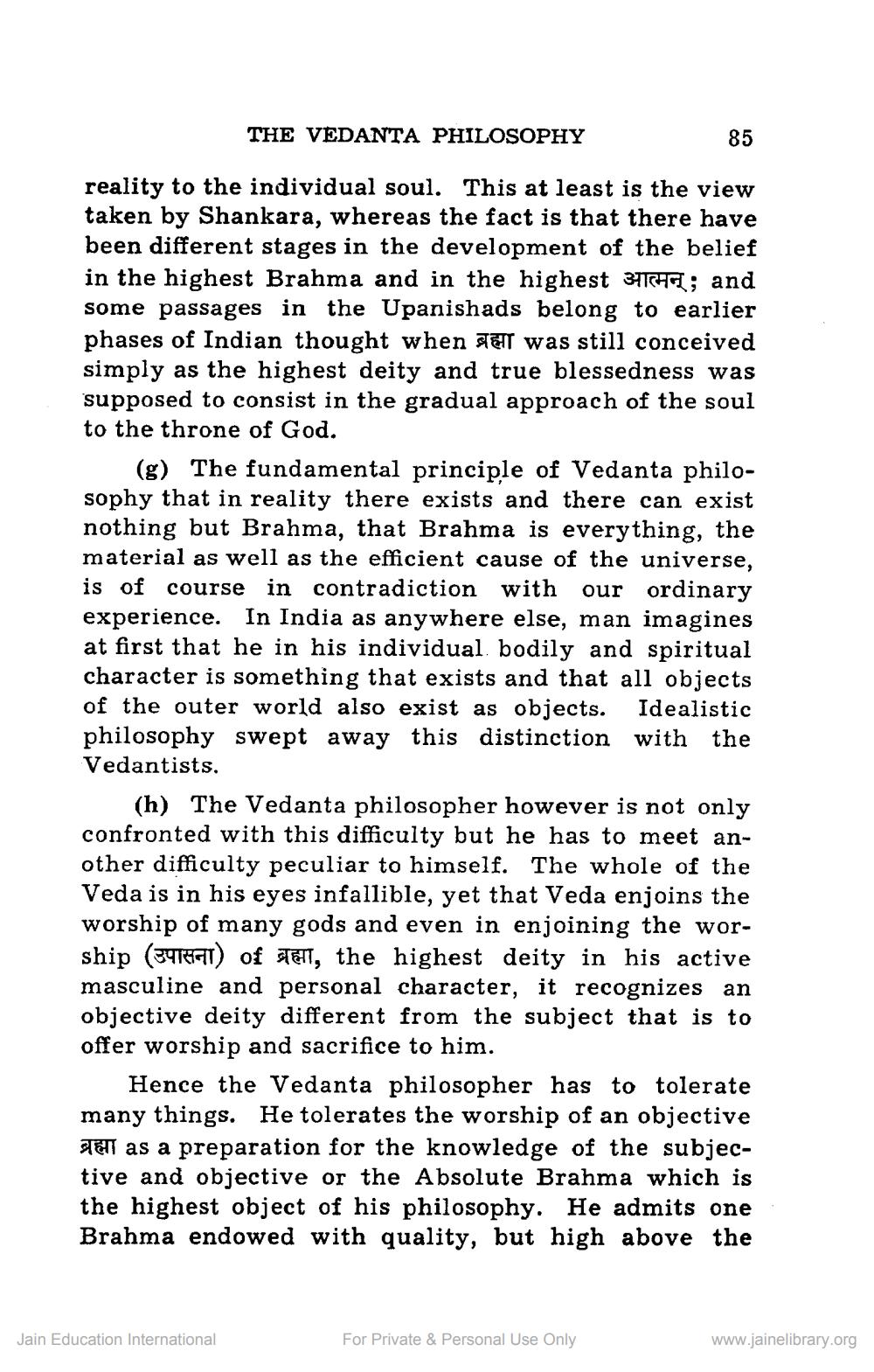________________
THE VEDANTA PHILOSOPHY
85
reality to the individual soul. This at least is the view taken by Shankara, whereas the fact is that there have been different stages in the development of the belief in the highest Brahma and in the highest 371Het; and some passages in the Upanishads belong to earlier phases of Indian thought when we was still conceived simply as the highest deity and true blessedness was supposed to consist in the gradual approach of the soul to the throne of God.
(g) The fundamental principle of Vedanta philosophy that in reality there exists and there can exist nothing but Brahma, that Brahma is everything, the material as well as the efficient cause of the universe, is of course in contradiction with our ordinary experience. In India as anywhere else, man imagines at first that he in his individual bodily and spiritual character is something that exists and that all objects of the outer world also exist as objects. Idealistic philosophy swept away this distinction with the Vedantists.
(h) The Vedanta philosopher however is not only confronted with this difficulty but he has to meet another difficulty peculiar to himself. The whole of the Veda is in his eyes infallible, yet that Veda enjoins the worship of many gods and even in enjoining the worship (उपासना) of ब्रह्मा, the highest deity in his active masculine and personal character, it recognizes an objective deity different from the subject that is to offer worship and sacrifice to him.
Hence the Vedanta philosopher has to tolerate many things. He tolerates the worship of an objective tal as a preparation for the knowledge of the subjective and objective or the Absolute Brahma which is the highest object of his philosophy. He admits one Brahma endowed with quality, but high above the
Jain Education International
For Private & Personal Use Only
www.jainelibrary.org




